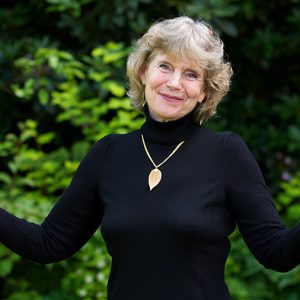One Great Poem

Rumi, a 13 century Persian poet, is one of the best-known poets in the world because he speaks directly to the awakening that is happening in human consciousness. The Guest House, his most well-known poem, speaks directly to one of the core foundations of awakening – discovering how to be with whatever life brings us.
This has not deeply permeated human consciousness. Most religions, therapies and, for many people, even the movement about living in the now, are all about getting to the good stuff and getting rid of the so-called bad. “If I just pray right or think positive thoughts or fix my anxiousness or live in the now, everything will finally be okay.” But the difficulty is that the now includes the 10,000 joys and the 10,000 sorrows. So true awakening is all about discovering how to stay open to the easy and the difficult, the joyous and the sorrowful that make up life.
I would like to share the poem with you and then share some of the ways that this poem touches me.
This being human is a guesthouse.
Every morning a new arrival.
A joy, a depression, a meanness,
some momentary awareness comes
as an unexpected visitor.
Welcome and entertain them all!
Even if they are a crowd of sorrows,
who violently sweep your house
empty of its furniture,
still, treat each guest honorably.
He may be clearing you out
for some new delight.
The dark thought, the shame, the malice,
meet them at the door laughing and invite them in.
Be grateful for whatever comes,
because each has been sent
as a guide from beyond.
Rumi starts by acknowledging something that we rarely notice…that we have a stream of thought moving through us all day long, a stream that most of us are identified with. We think we are our thoughts. He says, “This being human is a guesthouse. Every morning a new arrival…,” but really it is every moment as the mind tumbles from one thought to another, telling itself stories about liking and disliking, wanting and resisting, accepting and rejecting.
He then begins to explore the heart of the message…, ‘Welcome and entertain them all even if they are a crowd of sorrows who violently sweep your house empty of its furniture still, treat each guest honorably.” This is the core invitation of the poem – to become a guest house that welcomes whatever comes, so it can flow right on through you.
Mostly our minds are living the opposite of being a guest house. If you could watch your mind up on a screen, you would see that most of the time it is constantly trying to get rid of the thoughts, feelings and sensations that it deems unlikable and unwantable, and at the same time it is trying to get to what it deems the ‘good stuff.’ This just keeps us caught in a perpetual world of low-grade struggle, which oftentimes flares up into difficulties, crises and emergencies.
To unhook from this quicksand of struggle is to step back, see what is going on (Fear is here rather than I am afraid) and even allow and welcome whatever is there. Or, as Eckhart Tolle says, “Whatever the present moment contains, accept it as if you had chosen it. Always work with it, not against it. Make it your friend and ally, not your enemy. This will miraculously transform your whole life.”
We’re only beginning to realize that all our struggling with struggle has never really opened us to the deep peace that is our true nature. And now we are beginning to open to the power of seeing, allowing and even welcoming the thoughts and feelings that make up our compulsion to struggle with life.
He then alludes to what happens when you discover how to be a guesthouse by saying, “He (whatever thought, feeling or sensations that is showing up) may be clearing you out for some new delight.” How can “the dark thought, the shame, the malice,” make way for delight? Right outside of your struggling mind is your natural essence, your true nature. The more you learn how to relate to what is showing up inside of you rather than identifying with it, the grip your mind has on your attention begins to soften and there are gaps in your struggles. What shows up in these gaps is the beingness that you truly are, and you now have access to its insight and wisdom.
He also says, meet them at the door laughing. Most the time laughing is not how I respond to a something uncomfortable arising inside of me. But more and more I can meet my thoughts, feelings and sensations with curiosity and compassion.
In the last part of the poem he says, “Be grateful for whatever comes, because each has been sent as a guide from beyond.” When he says, “sent as a guide,” he is pointing to the truth that life is a highly intelligent process and is giving you the exact set of experiences you need to see and see through your compulsion to struggle. We think life is happening to us, but it truly is for us.
Yes, we have been deeply conditioned to reject the unwanted in an effort to get us out of struggle but, it turns out, all the ways we try to fix or change our experience actually keep us caught in struggle! Rumi is inviting us to open to, and accept all the thoughts, feelings and sensations that move through our body and mind. He is inspiring us to live with openness to whatever is showing up and to meet it with clarity and kindness so we can discover that who we really are is the space that all our experiences are flowing through.
The more we show up for whatever we are experiencing, the more we relearn to experience life directly as it is unfolding and know the indescribable joy of being open to life.




This is so beautiful, but I’m not sure what it means Mary when you say that “who we really are is the space that all our experiences are flowing through.” Could you elaborate a bit more on what that ‘space’ is, please? Thank you!
Thank you Mary. Your timing is always perfect in ‘my life’. I love Rumi, and have never read this poem before. What a beautiful way to start my day and the rest of my life.
Lovely. Thanks for sharing.
This poem has always resonated with me.
Thank you for sharing you thoughts on it.
I am working on total surrender to whatever life presents to me. I find it still difficult with body pain. Trying to trust that God only wills peace and happiness for me and that my will and Gods are one. Sharing our challenges and how we found peace within them is important work. Blessings to all.
Thank you so much for sharing your experience.
Hi Mary,
Just LOVE this wisdom! As we bless whatever shows up in our experience , we allow ourselves to see the *true gift* of why the experience came to us to begin with. What I love about your teachings is the grace and the wisdom that you remind us all that we have within us. Blessings to you my friend! – Paul Bauer
Thank you so much for taking the time to comment. It warms my heart.
I am going through grief from the recent passing of my daughter from a cerebral aneurysm at age 38. She left so suddenly that my husband and I are devastated.
As I read this beautiful poem and its explanation, I come subtly to the realization that my bitter and sweet pain are just guests in my house and that I can welcome them as they are: guests.
Thank you for this beautiful piece that, I know, will help our family go through life with the sadness of the now and the joy that we had with her.
Dear Mary,
This poem and your thoughts are so beautifully expressed and meaningful to me. Thank you for taking time time to offer your insight. It is particularly relevant to me today, and I thank you.
In gratitude,
Barb Ja;;
Thank you for your kind words.
One of my very favorites. Your words deepen the beauty of this ancient poem. With love and gratitude 🙏
Thank you so much!